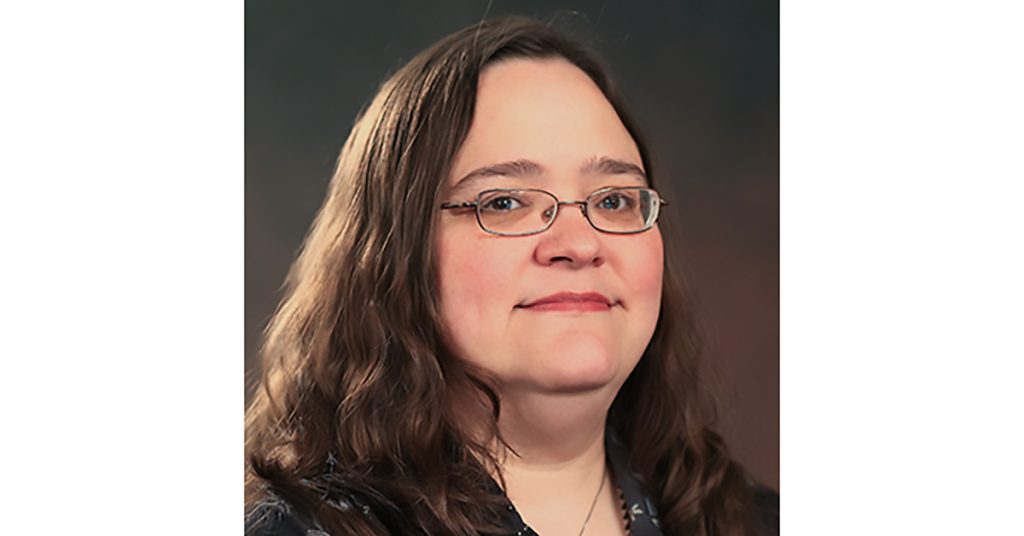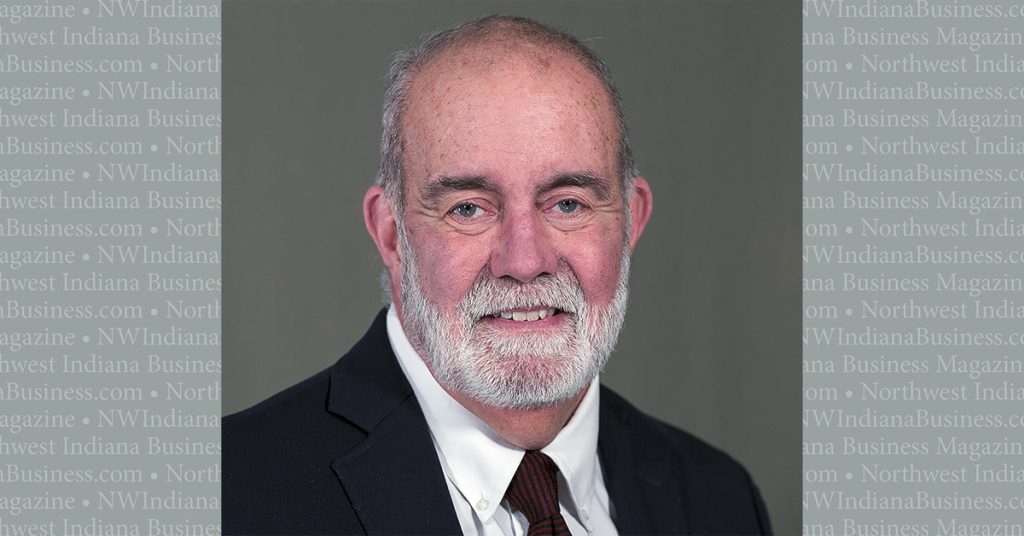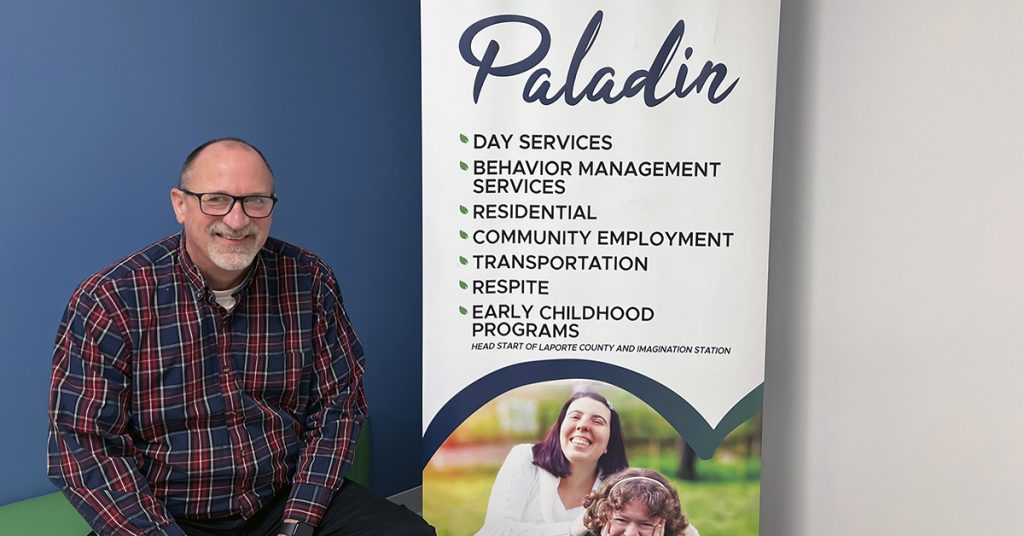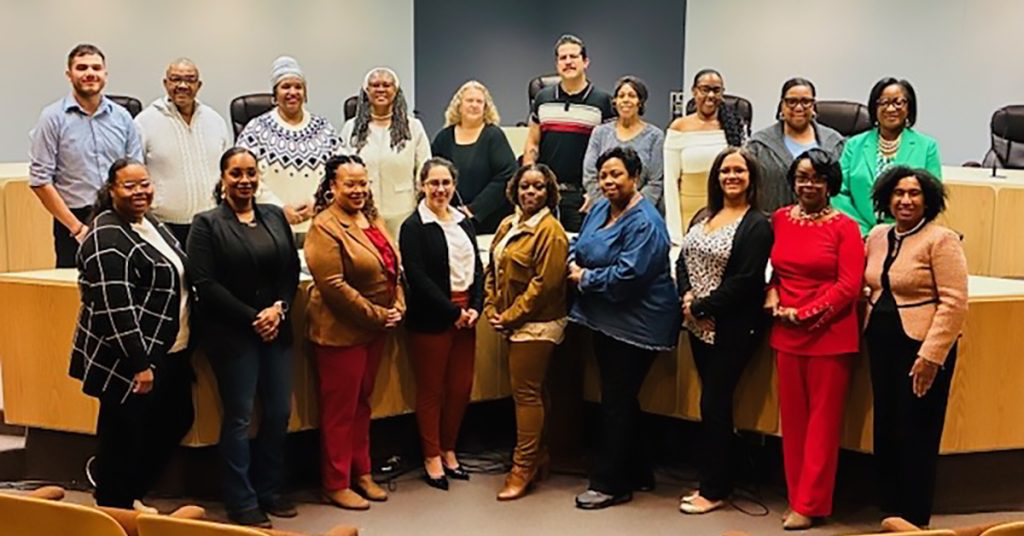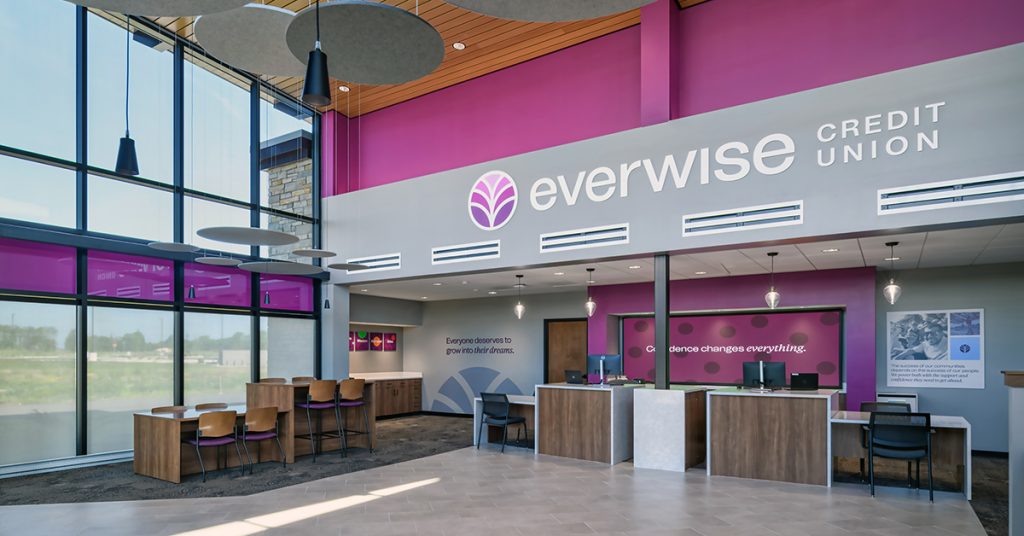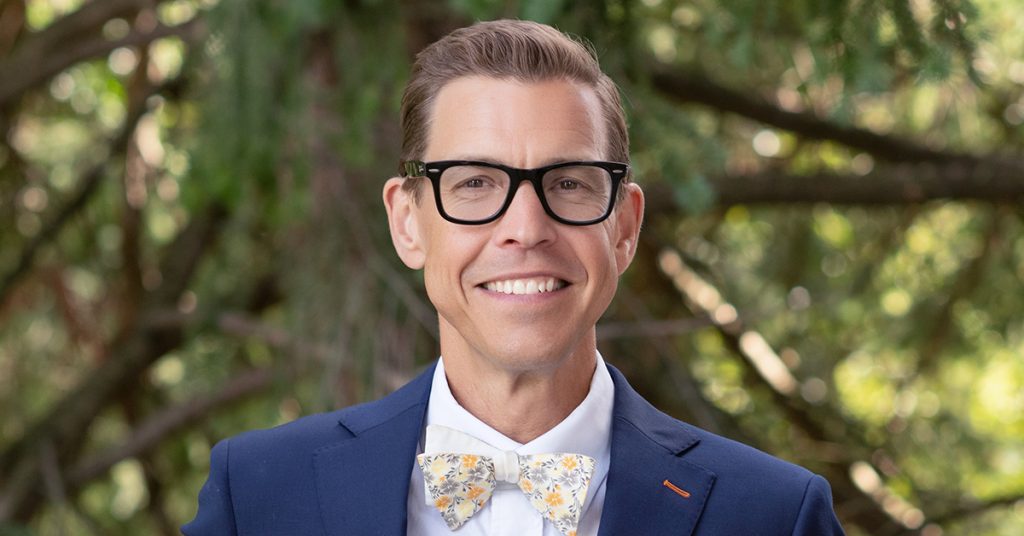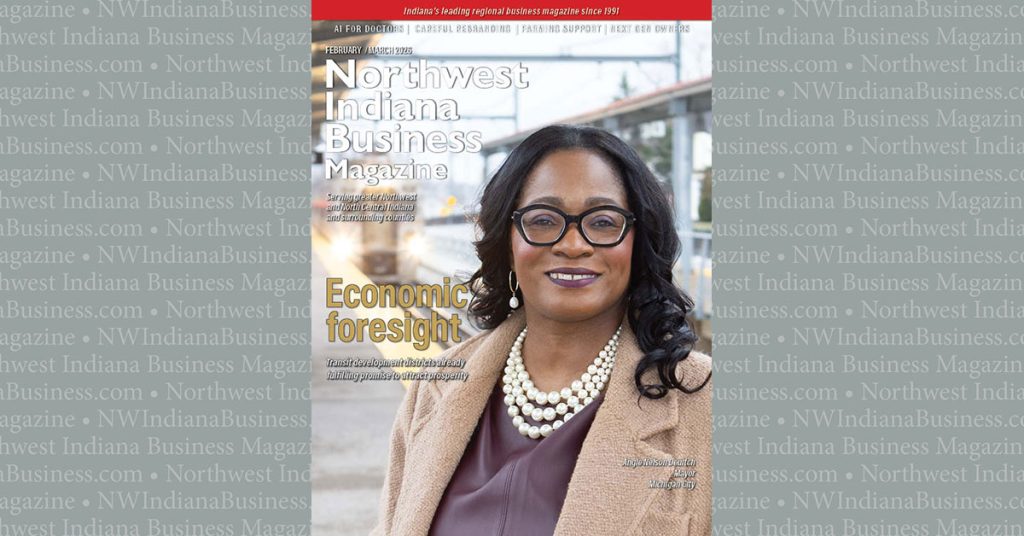
Women build careers that break barriers, create opportunities for everyone
Northwest Indiana, known for its rich industrial history and vibrant cultural tapestry, is undergoing a transformative shift in its business landscape.
At the forefront of this evolution is women. Their innovative spirits and skillful leadership are reshaping the Region’s economic and entrepreneurial arena. There are more than 14 million women-owned businesses in the U.S. Indiana ranks 10th in the nation, with 42.5% of businesses owned by women, according to the U.S. Small Business Administration.
“The future of women in entrepreneurship is bright, with the increasing access to capital, supportive networks and leadership opportunities,” said Kari Marich of Staff Source in East Chicago. “I believe this will continue, and women will play integral roles in driving innovation and growth across diverse industries globally.”
As Northwest Indiana moves forward, the future of its business community will be as vibrant and dynamic as the women who are forging its path.
The trailblazing professionals profiled here are driving growth in the Region. They are eight of the 191,000 women in Indiana who own businesses. Their work is fostering a more prosperous and inclusive business environment for everyone. Here are their stories:
 1. Kari Marich
1. Kari Marich
Staff Source
Kari Marich’s company was recently voted Northwest Indiana Business Magazine’s Best Woman-Owned Business in Northwest Indiana. And with good reason. She faced a significant hurdle and found the courage to set her sights on growing her business.
Marich is the chief financial officer of Staff Source, a thriving staffing company. She wasn’t always in business. Marich started her career as a pharmacist.
In 1998, Marich, along with her husband and friends, started their first company. They opened Staff Source in East Chicago. Marich continued her pharmacy career and took on the financials of the new company.
“Many individuals feel being a business owner allows you to make your own hours, creating a more relaxed lifestyle. In my experience, this is most definitely not true,” Marich said. “Owning your own business doesn’t allow you to punch out on a daily basis. However, it does create the chance to accomplish things you never envisioned possible.”
As their business ventures expanded, so did Marich’s role. She left her pharmaceutical career and became the chief financial officer of their companies: Staff Source, Contract Services Group and Benchmark. In 2015, she and her husband bought out their partners.
“This pivotal moment allowed my husband and I to gain full ownership of the companies,” Marich said. “With him excelling in sales and me focusing on organization and bookkeeping, we were able to devote our efforts to what we knew best, which ultimately led to immense success.”
To Marich, Staff Source is a family business. When her husband passed away last October, her staff rallied to her side.
“A significant portion of my Staff Source internal staff is made up of women, and we’ve built a very strong, supportive community both in and out of the office,” Marich said. “They are all truly family.”
Marich’s oldest son, Mike, joined Staff Source this year. Her two other sons, Max and Sam, contribute during school breaks.
“As the next generation enters the workforce, it’s my dream to see the business reach even greater heights,” Marich said. “I would love to see all three of them work together to continue growing the company when I decide to retire.”
Marich encourages women interested in owning businesses to connect with other business owners, learn about their challenges and practice looking at both sides of a conflict.
“Embrace new ideas, stay adaptable, be patient and evolve as the world around you changes,” Marich said. “Work hard, but always take time to celebrate your accomplishments.”
 2. Bahiyah Shabazz
2. Bahiyah Shabazz
Decimalytics
Bahiyah Shabazz, founder and CEO of Decimalytics, said it took her awhile to figure out her purpose in life.
“It was not until adulthood that I realized that my passion defined my purpose,” she said.
Shabazz said she is the firstborn in her family, the oldest of three and a tenacious overachiever.
“I admit that opportunities presented themselves, and I created a path when they did not,” she said.
When Shabazz was 5 years old, her father gave her a medical encyclopedia. Every day she learned new medical terminology and studied words from the dictionary.
Shabazz didn’t become a medical doctor, but she is pursuing a doctorate in business administration. She is also drawing from her 20 years in the financial industry to run Decimalytics in Merrillville. Shabazz helps business owners break down numbers to rebuild for profit through planning and investing.
“Entrepreneurship is the foundation of this country, specifically, the Midwest,” Shabazz said. “Business ownership offers a path to financial independence and wealth creation. It is a way to often invest back into the communities, creating jobs, supporting local economies and contributing to the overall well-being of neighborhoods.”
Shabazz sees her role as more than a financial adviser.
“As a community leader, my mission is to diligently work as an advocate to build wealth and close the equity gap,” Shabazz said. “My background has always involved helping others, uplifting my community and finding solutions to problems.”
Shabazz advises women who want to start businesses to have a passion and sell a solution to a problem.
“The passion will encourage you to continue on days when you question your why, and the solution will be acknowledged in sales when your target audience supports your product or service,” she said. “Find the need and stick with it.”
Shabazz believes that women bring powerful knowledge and experience to businesses in support of the wider community.
“It boils down to the old African proverb ‘If you educate a man, you educate an individual, but if you educate a woman, you educate a nation,’” Shabazz said. “An industry cannot expand if the knowledge, tools and actions are not shared. We understand that success is a collaborative effort.”
 3. Carolyn Eichelman
3. Carolyn Eichelman
Me O My Earth
Carolyn Eichelman remembers when the world’s last male northern white rhino died in 2018.
At the time, Eichelman was an executive with over 25 years of experience in product development, marketing, sales and sourcing. She focused on children’s apparel, working with companies like Walt Disney and OshKosh B’Gosh.
Eichelman knew her children would experience a world with more animals on the brink of extinction. She and two colleagues also noticed a gap in the market.
“We’re all moms, and we’re all trying to solve problems. We saw a void for a really good eco-friendly product for infants and toddlers,” Eichelman said. “We wanted to leave something for our children and take care of our Earth.”
Eichelman combined her experience in the fashion industry with her passion for conservation. The result was Me O My Earth, a Northwest Indiana-based company that sells eco-friendly products for babies and toddlers. The fabric is a blend of organic cotton and polyester made from recycled bottles. The company sources products sustainably and limits its carbon footprint.
“One of the pillars of the company that is very important to me is to give back and to take care of Mother Earth,” Eichelman said.
Me O My Earth’s products feature graphics of endangered species to spotlight the importance of protecting them. The company donates a percentage of sales to organizations that preserve the planet and care for endangered species.
“It was an important moment when we started working with zoos and aquariums,” Eichelman said. “We really felt like we met our people.”
Eichelman grew up visiting Brookfield Zoo in Chicago. Today her products are carried in 28 zoos, museums and aquariums across the country.
“A lot of what I was passionate about in my youth is coming together,” she said.
Wanting to do what’s best for future generations is key to Eichelman’s business ethos. She values the insights women with families have to offer the business world. As vice president at a former company, Eichelman advocated for an employee on maternity leave when others expressed concern about her future job performance.
“I said, ‘Are you kidding? When she comes back, she’s going to be amazing because she has a newborn and we’re in children’s products!’”
Eichelman believes owning a business can be empowering. “It’s really important for women to know we can take care of ourselves and contribute.”
 4. Emily Williams
4. Emily Williams
Geenex Solar
“I’m a firm believer that it takes all perspectives to make a strong company, a strong economy,” Emily Williams said. “More women in business ownership and business leadership means that there are different perspectives, valuable perspectives brought to the table that make all of us better.”
Williams is one of those voices at the table. Last October she was named chief executive officer of Geenex Solar.
Born and raised in Indiana, Williams started her career at Indiana Municipal Power Agency, which has member utilities in the Region. She traveled the state, often visiting communities in Northwest Indiana and working with their electric companies and local officials.
Williams graduated from Indiana University’s Robert H. McKinney School of Law and was admitted to the Indiana Bar in 2015. Six years later, she earned her MBA from Indiana University’s Kelley School of Business and started working at North Carolina-based Geenex Solar.
At Geenex, Williams developed solar projects in Kentucky and Indiana. She grew with the company. As CEO, she leads an organization of about 40 team members and works on projects in Indiana.
“In Northwest Indiana, we are excited to be developing utility-scale projects in Marshall, Elkhart and St. Joseph counties,” Williams said. “Each project is in the early stages of development. As these projects progress, we look forward to working on them hand-in-hand with the communities.”
At Geenex, women represent 60% of the management team.
“I see our women team members digging into their work day in and day out. They are simply amazing,” Williams said. “Women have the passion, and they have the work ethic, sometimes they just need the confidence.”
Williams encourages women entrepreneurs to take stock of their strengths and to build a strong team.
“It seems at times that women feel that they need to carry all of the load,” she said. “But rather, owning your own successful business or being in the business world successfully means working with an amazing team.”
Williams reflects on her grandmother’s and mother’s generations and is aware of opportunities she had that they didn’t.
“Due to the hard work of generations past, there are now ample opportunities to have a seat at the table,” Williams said. “It is ripe for the claiming for those who have the drive and desire to be a part of the conversation. And looking forward to future generations of working women, it truly seems limitless what a girl of today can do tomorrow.”
 5. Allyson Straka
5. Allyson Straka
Frozen Garden
Allyson Straka’s business was born from a conversation with her father.
As a nutrition consultant, Straka saw her clients struggle to find time to prepare healthier meals.
“If you could get your clients to do just one thing for better health, what would it be?” Straka’s father asked her.
“Drink a green smoothie every day,” Straka replied.
Straka thought about how to make that easy for clients. She combined her entrepreneurial skills with her passion for healthy eating and started Frozen Garden in 2015.
Valparaiso-based Frozen Garden produces healthy frozen smoothies, grain bowls and microwavable meals. Straka sources ingredients locally. Her products are delivered to homes in 48 states.
“I always loved the startup environment because it meant that I could make a significant impact with my work,” Straka said.
A graduate of Indiana University’s Kelley School of Business, Straka spent her early career in startup software companies. When she began having children, Straka became interested in healthy, mindful eating.
“I went back to the basics and started feeding my family what I call ‘real’ food … whole, minimally processed foods,” Straka said. “This new passion for food and nutrition motivated me to change my career path.”
Like any business owner, Straka has faced challenges. Working in a male-dominated industry has been one of them.
“I have experienced everything from being repeatedly called ‘honey’ and ‘sweetie’ to freight drivers getting angry when they realize there are ‘only girls’ available to unload the truck and even dealing with a grocery buyer who made extremely inappropriate sexual remarks and gestures during a sales pitch,” Straka said.
Work-life balance is another common struggle for women in business. Running her own business gives Straka the flexibility she needs, flexibility she extends to her employees in turn.
“As a single mom myself, I am unable to work the traditional 9-to-5 schedule,” Straka said. “I offer this same flexibility to my team members. This attracts other moms who have a hard time finding jobs that offer that flexibility.”
Despite progress, Straka sees significant gender inequity in business.
“We just have to continue to push for change and advocate for ourselves,” Straka said. “We shouldn’t have to decide between a career or a family. If there are more women business owners, we can design and shape the industry to be more flexible so that we can balance both a career and family. There is power in numbers.”
 6. Penny Schlyer
6. Penny Schlyer
Authentic Impact Business Coaching
With her talent for seeing the big picture and connecting the dots, Penny Schlyer has excelled in business and made a career of empowering other women.
Schlyer spent 25 years working in software and technology. She traveled the world and worked with small to mid-sized to Fortune 50 companies spanning multiple industries.
“As I crossed into my 50s and took some time to reflect on my experiences and what energized me, I realized there was a pattern,” Schlyer said. “Throughout my career, I’ve always gravitated toward transformation.”
Schlyer’s experience included launching products, establishing teams and transforming the mindsets of existing teams.
“Given all of these wonderful experiences, I decided it was time to make an impact closer to home,” Schlyer said. “Small and medium businesses are the lifeblood of our economy and country and need help. I knew I could help.”
Schlyer became a certified business and executive coach through Focal Point Coaching. She opened Authentic Impact Business Coaching in Ogden Dunes.
As a coach, Schlyer works to help business leaders in the community achieve more success and fulfillment.
“One of the biggest challenges I see is women under-valuing their products and services or trying to please everyone or wearing all the hats,” Schlyer said. “We believe we have to be superwomen.”
Schlyer faced challenges in her own career in the male-dominated field of software and technology.
“There were times I was told that my husband should be the breadwinner, and one boss told me I was not director material when I expressed interest in a role that had opened up in my department,” Schlyer said. “I didn’t let these things bring me down. Instead, it fired me up. I focused on building the skills and competencies I needed to advance.”
Schlyer took on stretch projects, worked hard and made connections with people. From that time on, she was recruited for every role she took. At the same time, she raised three boys with her husband.
Schlyer recently started a coaching program specifically for women.
“I started Grit & Grace to support women business owners who have poured their heart and soul into the business and have been successful but want to get to the next level,” Schlyer said.
Grit & Grace combines education and accountability in an environment that empowers women business owners.
“Regardless of the industry, the ladies in my group are seeing that they are not alone,” Schlyer said.
 7. Janet Seabrook
7. Janet Seabrook
Community HealthNet
As a kindergartner, Janet Seabrook knew she wanted to be a physician.
“I stood up in front of the class and said I wanted to be a doctor,” Seabrook said. “A lot of the boys laughed and said, ‘you mean a nurse.’”
“’No,’” Seabrook said. “’I want to be the one who wears the thing around my neck.’”
My teacher told me that was a stethoscope, and I could be anything I wanted to be.
Seabrook’s teacher was Finis Springer, who taught at many schools in Gary. Springer was Seabrook’s mentor until her death in 2022.
Seabrook grew up in Gary and didn’t waver from her dream. She wanted to provide medical care to those in need regardless of income level or background.
Seabrook earned a degree in biology from Tuskegee University in Alabama. Six years later, she graduated from Meharry Medical College in Nashville.
In 1996, as a family physician, Seabrook founded Community HealthNet. The health care organization provides medical services to families and individuals of all income levels. Community HealthNet started small — with Seabrook working from a trailer.
Under Seabrook’s leadership as CEO, Community HealthNet has expanded to six locations in Lake County.
The path hasn’t always been smooth.
“I think as a woman there were some barriers put in front of me,” she said. “Those questions you’re not supposed to ask in interviews — ‘Are you married? Are you engaged? Do you have children?’ — they asked.”
Despite the barriers, Seabrook has thrived and dedicated her career to improving the lives of others. She has pushed for funding for community health centers in Northwest Indiana.
“I want to be that voice that advocates for people in the community to help get the services they deserve,” Seabrook said.
Seabrook serves on advisory boards and mentors students. She recently became Health Commissioner of Gary. Seabrook aims to address the social drivers of health, such as lack of housing and food insecurity.
“When you find out what needs there are in your community, and help meet those needs, you’re more able to take care of your health,” Seabrook said. “If I’m worried about my lights being turned off, then I might not be able to buy that medicine.”
Seabrook is persistent in her fight for access to quality health care for all.
“I think it’s important when you do have a platform, you should try to use it for good and try to elevate those who need to be elevated,” Seabrook said. “That includes women, minorities and children.”
How to certify as women-owned more than just paperwork
 8. Tammie Carr
8. Tammie Carr
TalentSource
The number of certified women-owned businesses across the nation has skyrocketed, increasing 114% in two decades, according to the National Women’s Business Council.
Tammie Carr, founder and CEO of TalentSource in Mishawaka, owns one of those businesses. She knows what it takes to become a certified women-owned business.
Carr’s career has come full circle. She got her first job through a staffing company. Today she runs her own.
“I recognized if I can be successful for other business, why can’t I be successful for my own business?” Carr said. “Plus, I wanted better work-life balance, so I wouldn’t miss events when my daughter was growing up.”
To start TalentSource, Carr drew from her network of business relationships. She turned to local business groups for education and support. Through the Great Lakes Women’s Business Council, the local Women’s Business Enterprise National Council chapter and the Indiana Department of Administration, Carr found a consultant to help with the certification process.
Certified women-owned businesses have significant advantages. To qualify, they must be at least 51% owned, controlled and operated by women. The certification opens doors to new business, including government contracts, grants and loans set aside for women-owned businesses. Many corporations and government agencies are committed to supplier diversity and working with women-owned businesses.
Businesses can apply for certification through WBENC and the Indiana Department of Administration. The process is involved and took a few months for Carr.
The application was “sort of like an autobiography of TalentSource,” she said.
Applicants need to gather documents showing eligibility, financial structure and management information. The review includes a site visit and interview.
TalentSource is a certified Women’s Business Enterprise and Women Owned Small Business through WBENC and a Women’s Business Enterprise through the Indiana Department of Administration.
“I want to believe more and more women will become entrepreneurs, and that business owners, like me, have helped paved the way,” Carr said. “Sharing the knowledge that a woman-owned business can become a certified diverse supplier can help greatly with this growth.”
Resources
Many organizations in the Region offer help to women who want to start and grow businesses. They provide education, mentorship, certification and networking opportunities. Here is the short list:
Great Lakes Women’s Business Council
Website: www.greatlakeswbc.org
IUN Center for Professional Development
Website: northwest.iu.edu/center-for-management-development/small-business-academy-workshop.html
IronWorkz
Website: www.ironworkz.org/
Lower Lincoln
Website: www.lowerlincoln.com/start
National Women’s Business Council
Website: www.nwbc.gov
NWI Influential Women Association
Website: nwiiwa.org
Northwest Indiana Small Business Development Center
Website: isbdc.org/locations/northwest-indiana-sbdc
SCORE NW Indiana
Website: www.score.org/nwindiana
Urban League of Northwest Indiana, Inc.
Website: www.urbanleagueofnwi.org
U.S. Small Business Administration Women’s Business Centers
Website: www.sba.gov/local-assistance/resource-partners/womens-business-centers
Women’s Business Enterprise National Council
Website: www.wbenc.org/regional-partner-organizations
1 Million Cups
Website: www.1millioncups.com/s
Read more stories from the current issue of Northwest Indiana Business Magazine.

 5. Allyson Straka
5. Allyson Straka 6. Penny Schlyer
6. Penny Schlyer 7. Janet Seabrook
7. Janet Seabrook 8. Tammie Carr
8. Tammie Carr